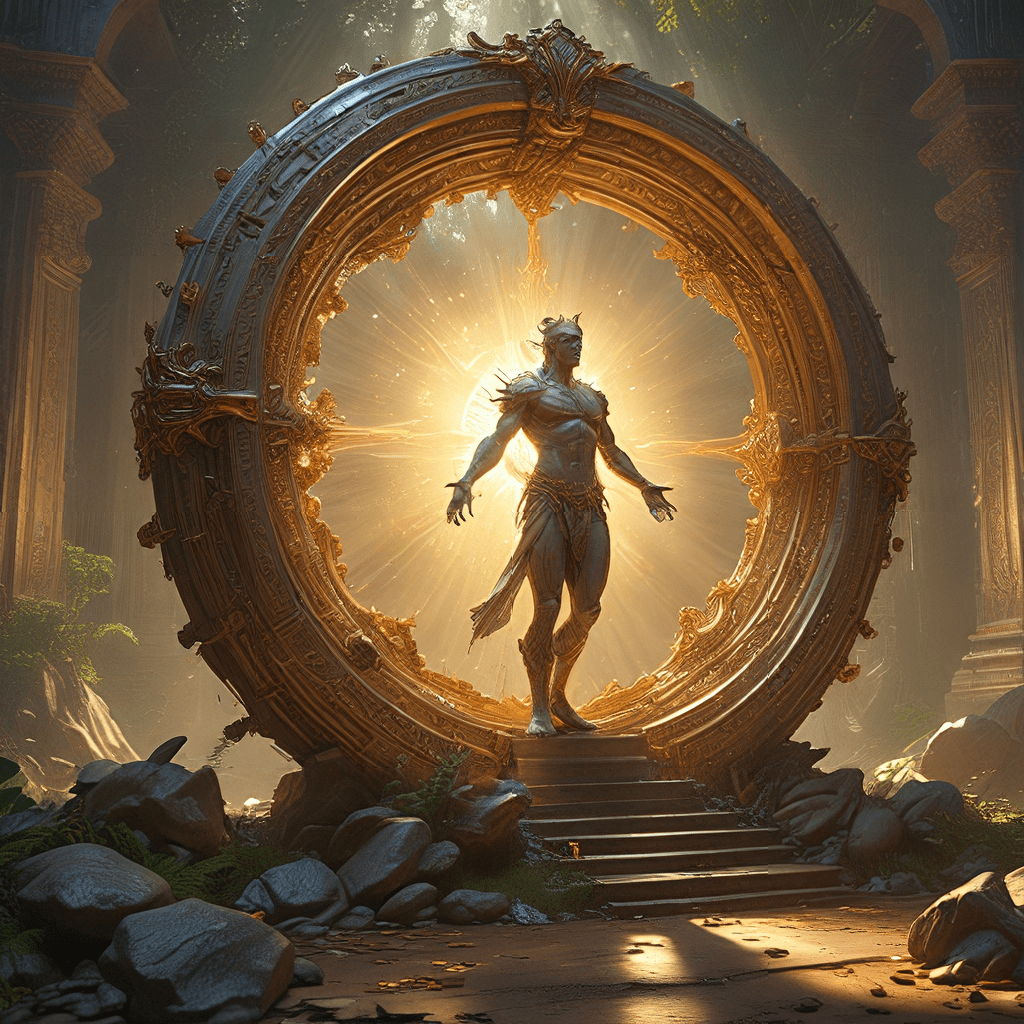The First Breath: The Gift of Life in the Egyptian Creation Myth
In the tapestry of ancient Egyptian mythology, the concept of breath holds profound significance, symbolizing the very essence of life and creation. The creation myth, a timeless narrative that explains the origins of the universe, revolves around the divine act of breathing life into existence. This article explores the key elements of the Egyptian creation myth, focusing on the role of breath as a catalyst for the emergence of the world and the enduring link between life and the breath.
1. The Primordial Waters: Nun and the Cosmic Egg
The Egyptian creation myth begins with the primordial waters, known as Nun. This vast, formless expanse of water represents the chaotic state that existed before the universe came into being. Within Nun, a cosmic egg, a symbol of potential and the seed of creation, was said to have existed. This egg is often associated with the concept of Atum, the self-created god who is the primary source of all creation.
2. Atum: The Self-Created God
Atum, the self-created god, emerged from the cosmic egg, bringing order and form to the chaotic waters of Nun. He was believed to have been a self-sufficient deity, capable of creating himself without any external forces. Atum is often depicted as a solitary figure, representing the solitary nature of creation.
3. The Breath of Life: Giving Form to the World
The moment Atum emerged from the primordial waters, he breathed life into existence. His breath, known as “Hetep,” brought forth the first elements of creation. This breath gave form to the world, separating the waters of Nun and creating the foundation for the emergence of the gods and goddesses.
4. Shu and Tefnut: Emergences of Air and Moisture
Atum, through his divine breath, created Shu, the god of air, and Tefnut, the goddess of moisture. These deities represent the essential elements needed for life to flourish. Their emergence marked the beginning of the physical world, separating the sky from the earth.
5. Geb and Nut: The Creation of Earth and Sky
Shu and Tefnut, in turn, gave birth to Geb, the god of the earth, and Nut, the goddess of the sky. Their union symbolizes the ongoing cycle of creation and renewal. Geb and Nut’s embrace gives rise to the world as we know it. The sky, represented by Nut, is depicted as a goddess arching over the earth, held aloft by Shu.
6. The Significance of Breath in Ancient Egypt
The act of breathing held profound significance for the ancient Egyptians. They believed that breath was the life force, the animating principle that sustained all living beings. The breath was seen as a conduit for the divine, a tangible manifestation of the gods’ presence in the world.
7. The Breath of Life in the Afterlife
The concept of breath extended beyond physical life into the afterlife. The Egyptians believed that the soul would continue to exist after death, and that the breath was essential for the soul to navigate the afterlife. The “Ka,” a spiritual double, was believed to retain the breath of the deceased and was essential for the continued existence of the soul in the afterlife.
8. The Role of the Heart in the Breath of Life
The heart played a crucial role in the breath of life. It was considered to be the seat of the soul and the center of emotions. The Egyptians believed that the heart would be weighed in the afterlife to determine the fate of the soul. Those who had lived a virtuous life would have their heart lighter than a feather, allowing them to enter the afterlife.
9. The Concept of “Ba” and the Soul
The concept of “Ba” refers to the soul, the essence of a person that continues to exist after death. The “Ba” possessed the power to travel between the earthly realm and the afterlife. It was often depicted as a bird, symbolizing its ability to soar and navigate the spiritual world.
10. The Enduring Legacy of the First Breath
The Egyptian creation myth, with its emphasis on the breath as the source of life and creation, has left a lasting legacy. The concept of breath continues to resonate in our understanding of life and the interconnectedness of all things. The myth reminds us of the sacredness of breath, the fundamental force that animates the world and connects us to the divine.




